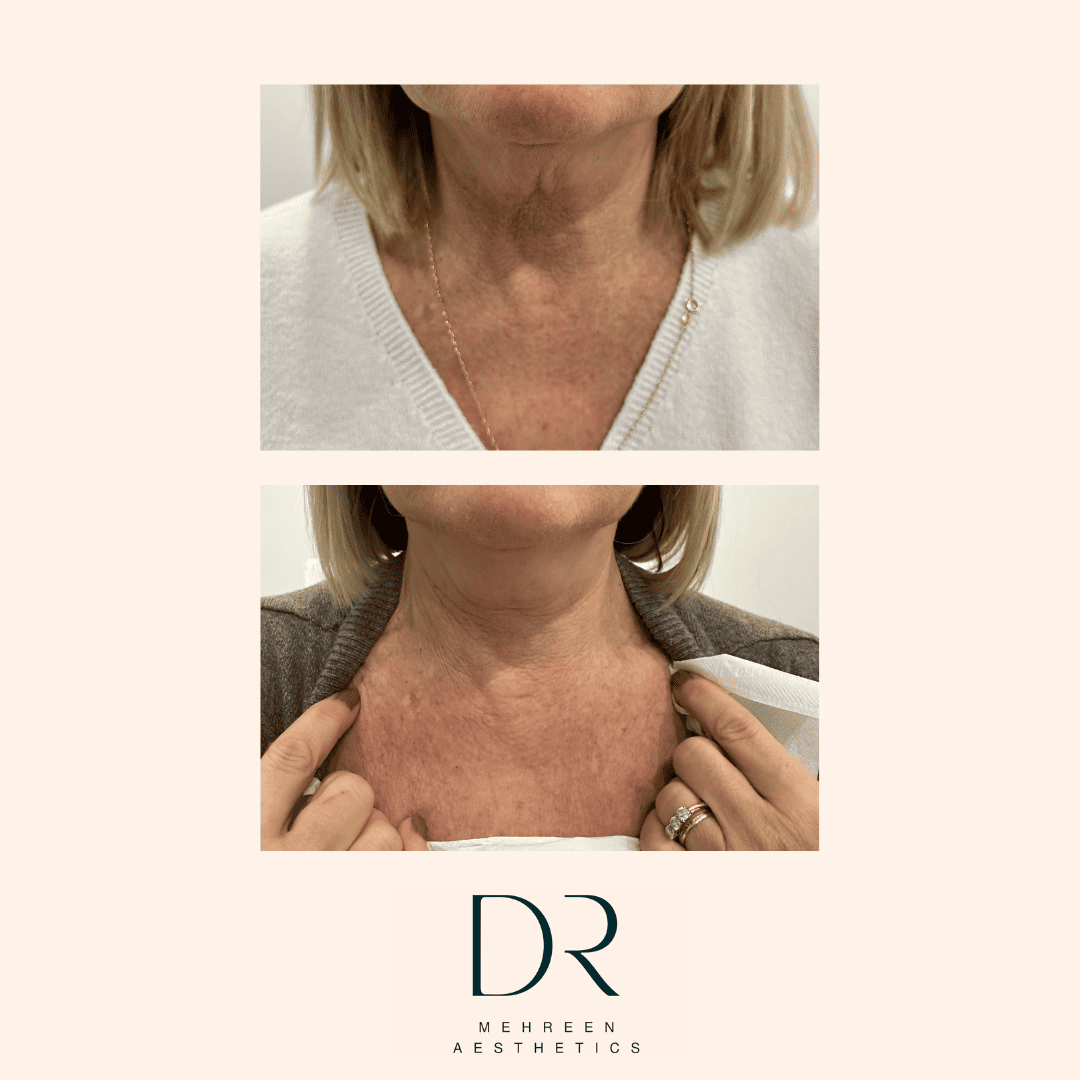Polynucleotides
What are Polynucleotides?
Polynucleotides, derived from Salmon and Trout DNA, activate fibroblasts, improve cell turnover, and promote tissue repair. They also reduce inflammation and rebalance melanocyte activity, achieving an even and refreshed skin tone without adding volume like traditional dermal fillers.
Polynucleotides are natural-origin product and the latest revolutionary tool in regenerative medicine that work on a cellular level to repair tissue and boost skin quality in both the face and body. This innovative new skin-boosting technology is taking the aesthetics market by storm and aims to transform the skin from within.

How is it different from other skin boosters?
Skin boosters are generally made from hyaluronic acid, which is great for giving your skin a hydration boost. They also can help to reduce the appearance of fine lines.Polynucleotides stimulate fibroblast and collagen production and wound-healing properties, unlike skin boosters. As a result, they don’t provide the same anti-aging and regenerating effects as polynucleotide injections do.
While some skin boosters contain extra beneficial ingredients like vitamins, minerals and amino acids, polynucleotides bring antioxidant and fibroblast stimulation into the mix as well as a hydration boost.
Polynucleotides can be used as the first treatment to prepare the skin for further treatments and procedures, however it can be used as treatment in its own right.
- How is it administered
After a thorough assessment and diagnosis, a personalized treatment plan is created. The treatment area is cleaned and numbed if needed. Clinicians then use fine micro needles or occasionally a microcannula to inject Polynucleotides into the targeted areas.
- Are Polynucleotides safe?
Polynucleotides, or PDRN, are a substance derived from DNA fragments used in skincare and aesthetic procedures for promoting wound healing and improving skin elasticity. When administered by a qualified healthcare professional, they are generally considered safe. However, potential risks such as allergic reactions or injection site reactions exist, emphasizing the importance of seeking professional guidance and following their recommendations for treatment to minimize any adverse effects.
Overall, while PDRN shows promise as a therapeutic agent in skincare and aesthetic medicine, it is essential for individuals considering treatment with PDRN to consult with a qualified healthcare professional to determine the most appropriate use and to ensure safety and efficacy.

